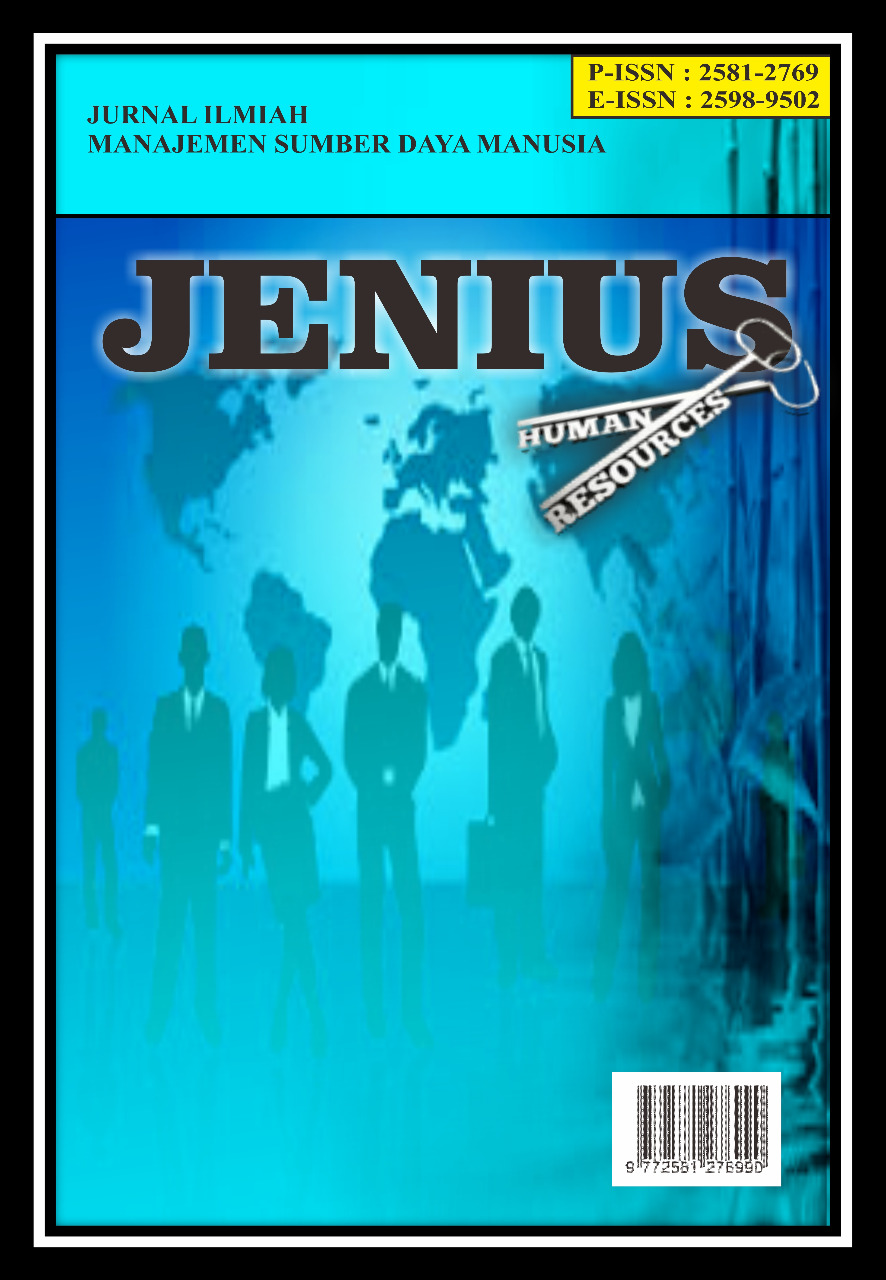The Influence of Motivation, Leadership Style, and Work Discipline on PT HSJI Employee Performance During the Covid-19 Pandemic
DOI:
https://doi.org/10.32493/JJSDM.v7i2.37639Keywords:
Motivation, Leadership Style, Work Discipline, Employee Performance, SEM-PLSAbstract
This research analyzes the influence of motivation factors, leadership style, and work discipline on employee performance during the COVID-19 pandemic. This quantitative research uses primary data, namely through interviews and filling out questionnaires. The sample was determined using a purposive method with saturated sampling—Structural Equation Model (SEM) data analysis using SmartPLS (Partial Least Square). This research shows that motivation factors and leadership style can influence work discipline factors, with a moderate accuracy value of 28.7%. At the same time, motivation, leadership style, and work discipline have a high accuracy value on employee performance, namely 78.2%. In this research, motivation and work discipline partially influence employee performance, while leadership style does not influence work discipline and employee performance. Then, motivation and leadership styles intervening through work discipline do not affect employee performance. The conclusion is that during the COVID-19 pandemic, the performance of PT HSJI employees was influenced by motivation and work discipline factors, while leadership style did not affect performance. It shows that the higher the motivation and the better the work discipline, the employee performance will also increase. Then, the better and more appropriate the leadership style applied by the leader, the better the employee performance will be.
References
Agustina, S. S., & Sukwika, T. (2021). Analisis kinerja pegawai pada direktorat sumber daya, ditjen dikti kemendikbud. Journal of Applied Management Research, 1(1), 34-44.
Anggraini, W. A., Sukamdani, N. B., & Sukwika, T. (2022). The Role of Leadership and Soft-Skills Competencies of The Performance at The Facility and Construction Unit Indonesian Armed Forces. Jurnal Pertahanan, 8(3), 469-479.
Ghozali, & Latan. (2015). Partial Least Squares (Konsep, Teknik, dan Aplikasi Menggunakan Program SmartPLS 3.0) Untuk Penelitian Empiris. Semarang: Badan Penerbit Undip.
Gustiranda, T., Sukwika, T., & Hadisumarjo, H. (2023). Relationship Analysis of Employee Human Resources Quality and National Achievement Center Service Performance in the Era of Industrial Revolution 4.0. Ilomata International Journal of Management, 4(2), 233-248.
Hair, J. F., Hult, G. T. M., Sarstedt, M., & Ringle, C. M. (2017). A Primer on Partial Least Squares Structural Equation Modeling (PLS-SEM) (2nd ed.), California, USA: SAGE Publications, Inc.
Hidayat, A. (2018). Analisa Pengaruh Gaya Kepemimpinan terhadap Kinerja Pegawai pada Suku Dinas Kebersihan Kota Administrasi Jakarta Timur. Penelitian Ilmu Manajemen, 1 (1), 141-50.
Prasetyo, G. B., Sukamdani, NB., & Sukwika T. (2023). Employee workload analysis at the financial services authority human resources management directorate with full time equivalent (FTE). JENIUS (Jurnal llmiah Manajemen Sumber Daya Manusia), 6 (3), 649-660
Robbani, G. G., Kholil, K., & Sukwika, T. (2021). Pengaruh kepemimpinan transformasional dan komitmen organisasional terhadap kinerja staf fraksi DPR RI. Journal of Applied Management Research, 1(2), 128-137.
Siagian, S. P. (2015). Manajemen Sumber Daya Manusia, Cetakan ke-23. Jakarta: Bumi Aksara.
Sukamdani, N. B., Sukwika, T., Panjaitan, H., Sukamdani, H. B., & Sulistyadi, Y. (2023). The impact of leadership style, organizational culture and motivation on personnel performance at the Indonesian Navy supply center depot. JIMFE (Jurnal Ilmiah Manajemen Fakultas Ekonomi), 9 (1) 57-68.
Sukwika, T. (2023a). Implementasi Software Partial Least Square (PLS). Pengantar Statistika. Solok: Mafy Media Literasi Indonesia
Sukwika, T. (2023b). Menentukan Populasi dan Sampling. Metode Penelitian (Dasar Praktik dan Penerapan Berbasis ICT). Deli Serdang: Mifandi Mandiri Digital
Sukwika, T. (2023c). Variabel dan Hipotesis. Metode Penelitian Kuantitatif (Teori dan Panduan Praktis Analisis Data Kuantitatif). Deli Serdang: Mifandi Mandiri Digital
Syarkani. (2017). Pengaruh Disiplin Kerja terhadap Kinerja Karyawan pada PT. Panca Konstruksi di Kabupaten Banjar. Jurnal Ilmiah Ekonomi Bisnis, 3 (3), 365-374.
Thoha, M. (2015). Kepemimpinan dalam Manajemen. Jakarta PT Raja Grafindo Persada.
Downloads
Published
How to Cite
Issue
Section
License
Copyright (c) 2024 May Rian Eka Saputra, Iman Basriman, Derinta Entas, Tatan Sukwika

This work is licensed under a Creative Commons Attribution 4.0 International License.
Authors who publish in this journal agree to the following terms:
The author owns the copyright of the article and assigns to the journal the right of first publication with the work simultaneously licensed under the terms Atribusi 4.0 Internasional (CC BY 4.0)
 which allows others to share the work with acknowledgment of the work's authorship and initial publication in this journal.
which allows others to share the work with acknowledgment of the work's authorship and initial publication in this journal.Authors may enter into separate additional contractual arrangements for the non-exclusive distribution of the published journal version of the work (for example, posting it to an institutional repository or publishing it in a book), with acknowledgment of the work's original publication in this journal.
Authors are permitted and encouraged to post their work online (for example, in institutional repositories or on their websites) before and during the submission process, as this can lead to productive exchanges, as well as earlier and larger citations of published work (See The Effect of Open Access).






.png)

